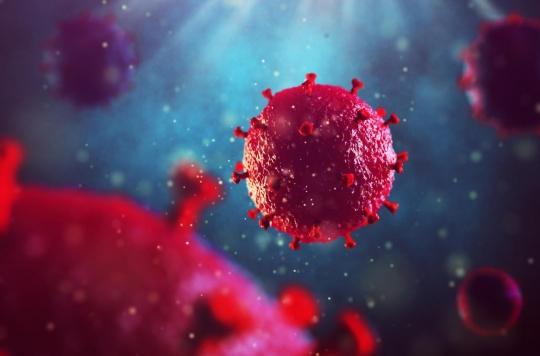Researchers have succeeded in developing proteins that mimic HIV and therefore capable of inducing the body to generate an immune response. This could ultimately contribute to the development of a vaccine against the virus.

Have researchers just taken a new step in the development of an HIV vaccine? That’s what a new study by Penn State University suggests.
In an article published in the journal NatureCommunications, its authors explain that they have succeeded, using computer modeling, in creating proteins capable of imitating the different surface characteristics of HIV by infiltrating its protective coating. Tested on rabbits, these proteins have enabled rodents to develop antibodies capable of binding to the AIDS virus to fight it better.
“We were able to demonstrate that using our designed proteins, blood was able to spontaneously generate antibodies that can inhibit HIV infection in cellular models,” explains Cheng Zhu, lead author of the study. “When we incubated the HIV virus, its infectivity was greatly reduced by the blood of the rabbits.”
Proteins that stimulate an immune response
Called immunogens, these specific proteins have the particularity of succeeding in infiltrating inside HIV. To protect a protein on its surface called Env, the virus uses a layer of carbohydrates which makes it very difficult for it to be accessed and neutralized by antibodies.
The researchers noticed, however, that “holes” naturally appeared in this carbohydrate coating, exposing the Env protein to potential antibodies. Immunogens were created in the lab to target these holes. “To develop neutralizing antibodies – that is, antibodies that neutralize multiple strains of a virus – we need to find something that stays constant on the virus for those antibodies to latch on to,” says Professor Cheng Zhu.
With his team, the researcher succeeded in copying sections of the surface of the virus and transcribing them on benign proteins “so that they look like the Env protein, but do not act like it”. Its objective: to enable the immune system to recognize the virus and therefore create antibodies to neutralize it.
Once these immunogens were created, the researchers inoculated them into rabbits to immunize them. They then took blood samples once a month, which allowed them to discover that their blood contained antibodies capable of binding to HIV.
A step in the development of a vaccine
If these results are obviously promising, the researchers concede that there is still a long way to go before the development of a vaccine against HIV. “It is important that we are able to generate an immune response to HIV and show that it is possible,” said Professor Nikolay Dokholyan, co-author of the study. “But we still need to improve the antibody neutralizing capabilities and other aspects before it can become a viable vaccine.”
“The immunogens that we have developed are not a finished product, but we have been able to demonstrate that it is possible to do so”, adds Professor Zhu. “Furthermore, it’s also very exciting that we’ve been able to create a new method to custom-build proteins, which could also open the door to developing vaccines for other infections.”

.














